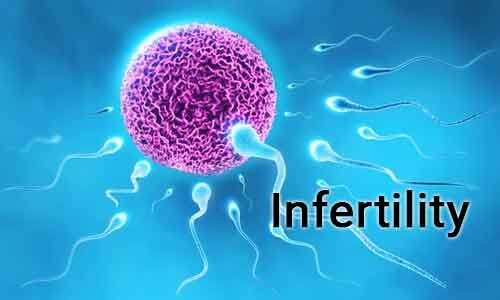Sexual performance
Causes Of Infertility

Genetic factors
The contribution of genetic constituents is profoundly significant when it comes to infertility issues. A myriad of genetic irregularities, ranging from chromosomal disagreements to inherited conditions that impede reproductive capability, may pose formidable obstacles in child conception. The implications of these genetic factors are strikingly felt in both genders, influencing the production efficacy and quality scale of sperm and eggs, besides controlling the success rate of carrying a pregnancy full term. Diagnosis and subsequent treatment of infertility are tremendously optimized by scrutinizing and pinpointing these gene-based components, facilitating the provision of bespoke, problem-targeted interventions by medical practitioners. Augmentation and refinement of genetic assay methods has notably elevated our capacity to discern and address these genetic elements, thereby fostering optimism for individuals and couples wrestling with the challenges of infertility.
Hormonal imbalances
Hormonal imbalances can indeed pose a substantial obstacle to fertility. For women, disruption in the equilibrium of hormones that include follicle-stimulating hormone (FSH), luteinizing hormone (LH), progesterone, and estrogen can meddle with the ordinary ovulation process, rendering conception challenging. Concurrently, men experiencing hormonal imbalances can witness a change in both the volume and vitality of sperm, which can potentially lead to infertility.
Contributing factors to these hormonal irregularities can range from conditions like polycystic ovary syndrome (PCOS), thyroid irregularities, and diabetes, affecting both genders. Further, certain medicinal treatments and procedures such as chemotherapy or hormone therapeutics can disturb the intricate hormonal harmonization required for fertility.
By recognizing and addressing these hormonal inconsistencies through medical intervention and lifestyle amendments, the likelihood of achieving a successful pregnancy can substantially rise.
Structural abnormalities
Structural irregularities within the reproductive system can significantly contribute to infertility. Such irregularities can manifest in both genders, impacting their reproductive capability. For males, these irregularities might encompass blockages or other hindrances within the sperm transport channels or discrepancies in the form or dimension of the reproductive organs. In the case of females, these structural defects can be associated with the fallopian tubes, uterus or cervix. These issues can disrupt the process of fertilization or the implantation of the now fertilized ovum. Originating from birth or developing later on, these structural irregularities might necessitate therapeutic procedures or surgery for rectification. Recognizing and resolving these structural irregularities is pivotal for infertility diagnosis and subsequent treatment.
Infections and sexually transmitted diseases
The inception of infertility can often be traced back to infections or sexually transmitted diseases, exerting destructive effects on the reproductive system and consequently obstructing conception endeavors. Infections including, but not limited to, chlamydia and gonorrhea have the capacity to ignite inflammation and induce scarring within reproductive organs, hindering their function. Concurrently, sexually transmitted illnesses such as HIV could potentially debilitate the immune system and negatively modulate fertility. Highlighting the critical importance of timeous and appropriate medical intervention to curb the adverse effects on fertility instigated by these infections and diseases. Moreover, the adoption and consistent implementation of safe sex practices and routine health screenings serve as an effective deterrent against contracting and propagating these infections and diseases, substantively mitigating infertility risks.
Lifestyle and environmental factors
Lifestyle choices and environmental influences hold considerable sway over instances of infertility. Habits including smoking, uncontrolled consumption of alcohol, and the misuse of drugs can profoundly hamper fertility in both males and females. Obesity alongside subpar diets can be equally influential, primarily by creating hormonal disequilibria and instigating other health complications that might impede fertility. Interactions with environmental hazards such as pesticides and chemicals might also hamper fertility.
Moreover, elevated stress levels and specific professions that necessitate being in contact with radioactive elements or toxins might augment the chances of infertility. It is therefore vital to recognize the implications of these lifestyle choices and environmental aspects and initiate suitable modifications to enhance fertility outcomes.
